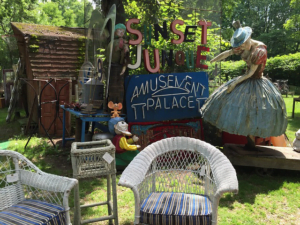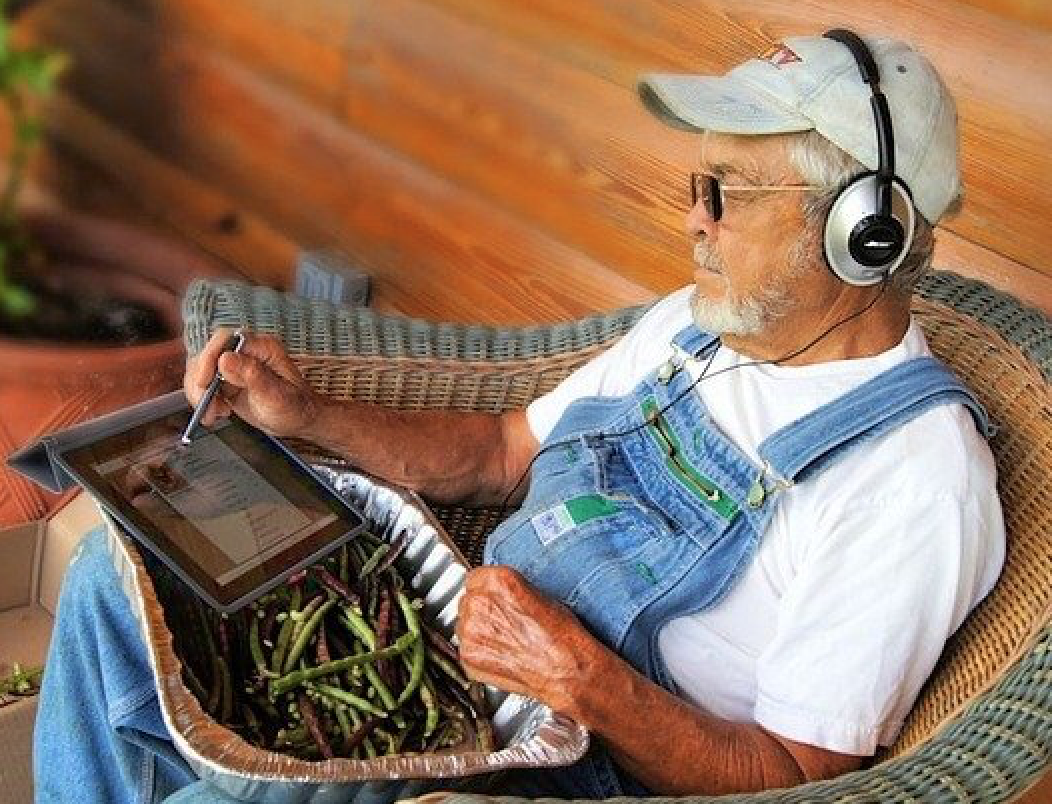As I wrote last time, I didn’t know much about farming when I got into AgTech. I did, however, know about technology and a bit about farmers. I grew up in a town of less than five hundred people who relied on the land and ocean to survive. I worked in the fields to buy school clothes. My older brother taught me to drive and shoot a gun before I was 10. While I didn’t know a tractor from a backhoe, I did recognize the callouses on the hands that I shook, because I was a product of that culture.
Growing up in this environment made it a lot easier for me to understand the way our agriculture clients worked. There was simply less translation involved. My coworkers, who grew up in cities and suburbs, were unfamiliar with the ins and outs of country life. I assumed it would be up to me to bridge the cultural gap. I was way wrong. Skyward Apps was successful with ag companies long before anyone here had ridden a tractor, because our culture puts people first, much like the way farmers approach business.
What yard sales can teach AgTech pros
My parents liked to thrift. Every Saturday from March to October, they’d drive all around the county and into the next to visit yard sales. If you’ve never been to “sedate” yard sales, think of the bazaars in the Indiana Jones movies, with merchants waving and bargaining and occasional eruptions of strange men chasing someone. That’s not far off from a Saturday afternoon at a Maine yard sale. Every purchase is a complex negotiation based on past histories and ideological values, despite the fact that you’re haggling over a quarter.
Every so often, I’d tag along with my parents, hoping to find an old trove of comics or a baseball bat less beat up than my old aluminum one. Being young, I didn’t really understand the culture of yard sales. Haggling wasn’t part of the buying and selling process in the 1980s. I was too young to realize that yard sale “negotiations” had very little to do with the value of the objects but instead, the values that sellers placed on the people buying the objects. One Saturday when I was around 11 years old, I was looking at an old chemistry set on a yard sale table. Most of the table was covered with homemade buttons from elections long past, for sale at a dollar a piece. A buyer came past the table, stopped, then abruptly offered a hundred bucks for all 20 of them. That would have been a 500% profit margin, but the seller turned the guy down flat. I asked the seller why he didn’t take the money for the old buttons. He said, “He didn’t talk to me first or shake my hand. This isn’t junk, these are my memories.” When he sold things, they were personal to him and more meaningful than just the money. This taught me early on just how much influence cultural connections play on our ability to build trust, win business and do business. The people you work with are no different than the man at the garage sale with the buttons. To succeed, we must take the time to listen—really listen–and be prepared to meet them with a handshake on their terms.
One Saturday when I was around 11 years old, I was looking at an old chemistry set on a yard sale table. Most of the table was covered with homemade buttons from elections long past, for sale at a dollar a piece. A buyer came past the table, stopped, then abruptly offered a hundred bucks for all 20 of them. That would have been a 500% profit margin, but the seller turned the guy down flat. I asked the seller why he didn’t take the money for the old buttons. He said, “He didn’t talk to me first or shake my hand. This isn’t junk, these are my memories.” When he sold things, they were personal to him and more meaningful than just the money. This taught me early on just how much influence cultural connections play on our ability to build trust, win business and do business. The people you work with are no different than the man at the garage sale with the buttons. To succeed, we must take the time to listen—really listen–and be prepared to meet them with a handshake on their terms.
Overcoming the ag-tech disconnect
In my experience, taking the time to learn the cultural language of a client or partner is unusual, and one of the reasons I enjoy working at Skyward. Technology is an enigma to the world outside our bubble. Our output, software, is invisible and indecipherable, and the language we use, incomprehensible to the average person. In contrast, agriculture deals with the concrete and tangible: land, crops, animals and equipment. It is labor intensive and physically demanding, dependent on people and relationships they trust.
Too often, technology companies underestimate their disconnect with end users, the result of two cultures that do not have much in common. Tech providers are all about absolutes: solvable problems with concrete, metrics-based solutions. That’s not much help to a farmer, for example, whose combine has broken down at harvest time with a manufacturer who no longer supports his equipment. We in technology have to realize we are the genie that cannot be put back into the bottle. In industries like farming, we represent the obsolescence and destruction of practices that stretch back generations.
Farming is not like other professions
Farming is emotional and all-consuming. There is no going home at the end of the day. Their work is their life. While we hunker down in the comfort of our homes, farmers are outside in weather we sit inside and complain about. It’s a job fraught with uncertainty. Weather, commodity prices, and trade agreements all create risks over which they have no control. It’s true that technology has afforded farmers greater protection against the elements, but the benefits of precision ag have created an uneven playing field for the vast majority of older farmers who did not grow up playing the game.
Farmers, for one, need to feel they retain some amount of control over the disruption that OUR industry is creating for theirs. With a bit of work and communication, clients or their clients can go from people feeling lost and angry about the changes leaving them behind, to someone championing innovation—or at least not fighting it. After all, they want to make money. The people sitting at those yard sale tables want to sell you their buttons, but we have to meet them on their terms.


